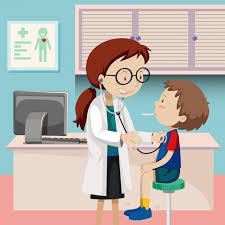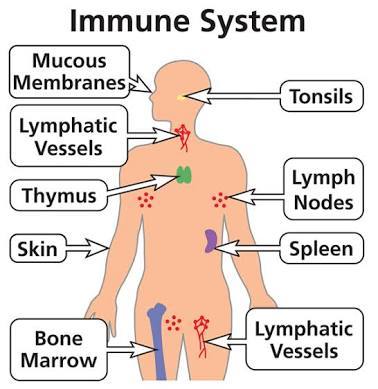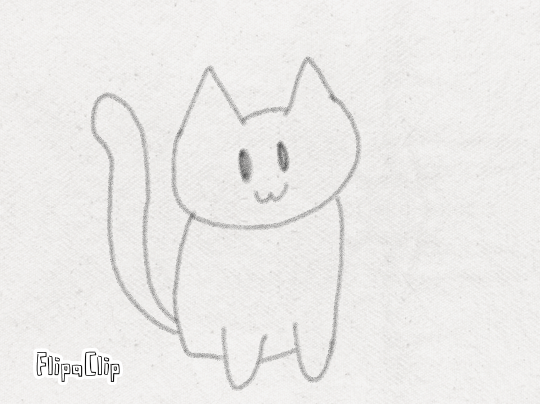#Best Nursery Schools
Explore tagged Tumblr posts
Text
Building Healthy Habits: 5 Essential Wellness Tips for Children
Early childhood is the perfect time to instill habits that set the stage for a lifetime of health and happiness. As toddlers grow, their developing bodies and minds need a balanced approach to nutrition, physical activity, emotional nurturing, and routine care. Here are five practical tips for fostering lifelong wellness in your toddler.
1. Provide a Balanced and Nutritious Diet
Nutrition is the cornerstone of your toddler's growth and development. A well-rounded diet supplies the essential vitamins, minerals, and energy they need.
What to include: Fresh fruits, vegetables, lean proteins, whole grains, and dairy products.
What to avoid: Processed foods, sugary snacks, and excessive salt.
Pro tip: Make mealtimes enjoyable by serving food in colorful, fun shapes. Offer small portions of new foods to encourage adventurous eating habits.

2. Encourage Physical Activity and Active Play
Toddlers thrive when given the opportunity to explore their environment through movement. Active play helps improve motor skills, coordination, and overall fitness.
Ideas for activities: Dancing, climbing, jumping, or playing ball games.
Outdoor fun: Nature walks, trips to the park, or simple backyard play.
Pro tip: Join them in their activities to bond and model an active lifestyle.
3. Prioritize Healthy Sleep Routines
Sleep is vital for toddlers, as it aids in physical growth, brain development, and emotional regulation.
Recommended sleep duration: 10-14 hours daily, including naps.
Bedtime routine: Establish a calming routine, such as a warm bath, reading a book, or listening to soft music.
Pro tip: Keep the bedroom dark, quiet, and cool to create an ideal sleeping environment.
4. Support Emotional and Social Growth
Toddlers are in a critical phase of learning to communicate and interact with others. Helping them manage emotions and build social skills sets the stage for positive relationships and emotional resilience.
Activities to try: Role-playing games, storytelling, and group play with peers.
Teach sharing and empathy: Encourage them to take turns and understand others’ feelings.
Pro tip: Acknowledge their emotions and guide them gently through challenging moments.
5. Schedule Regular Health Checkups
Routine checkups are essential for monitoring your toddler’s physical and developmental progress.
What to include: Immunizations, vision and dental screenings, and growth assessments.
Preventive care: Teach basic hygiene habits, such as handwashing and teeth brushing.
Pro tip: Turn doctor visits into a positive experience by explaining their importance and rewarding your child’s cooperation.

Raising a healthy toddler is a rewarding journey that requires attention to their physical, mental, and emotional needs. By nurturing these habits early, you’re setting your child on a path toward a lifetime of wellness and happiness. Start small, stay consistent, and watch your little one thrive!
Guru Global School is the Best Preschool for Kids in Indore, offering a nurturing environment where young minds flourish. With a focus on holistic development, innovative learning techniques, and a child-friendly approach, we ensure every child’s early years are filled with joy, creativity, and growth. Choose Guru Global School for a strong foundation in your child’s education journey.
#preschool in indore#best preschool for kids#top kindergarten in indore#best daycare in indore#daycare for toddlers#best nursery schools#kids schools bengali square#top senior kg school in indore#junior kg school in bengali square#best junior kg school
0 notes
Text
#Top 10 Nursery Schools in Panchkula#Nursery Schools in Panchkula#Top 10 Nursery Schools#Nursery Schools#Best Nursery Schools#Top Nursery Schools
1 note
·
View note
Text
Importance & Benefits of Best Preschool for Kids in Deoria!
These days the mental health of youthful ones is significantly impacted by early training to become kids a grown-up residents of tomorrow. The development is lined up with the fate of our nation, reflected through nature of the current schooling system. A school should animate interest in the youthful, naive personalities and furnish them with devices to be better people. Tejsvikidscare is the Best Preschool for Kids in Deoria examines about significance and advantages for youth training.
What Exactly is Best Kids School in Deoria?
Youth training is essentially Best Kids School in Deoria between the ages of 2 and 5. It is all the more generally alluded to as preschool, pre-kindergarten, childcare, pre-nursery or nursery school. Regardless of the various names, however they all have a similar reason - to plan youngsters for formal school. Really focusing on your youngsters before formal school assists in giving them a head with beginning for their future.

What is the Purpose of Best Nursery Schools in Deoria?
Youth schooling is like a preparation program given to kids. During class, young people will acquire the social, close to home, physical and mental improvement required to assist them with having a more promising time to come. In the event that done well, youth schooling can assist in fostering a long lasting affection for learning in kids. At this age, the improvement of essential ethics and standards of life starts to with developing. You really want to send your child to a spot where they can gain the most ideal propensities and habits throughout everyday life. Best Nursery Schools in Deoria offer classes all through the year with the goal that we can address your issues as they create. Our educators are exceptionally prepared and experienced in their main subject areas. They will work with your kid to help them develop and form into a sure, and free youthful grown-up who needs just to return to class once more! We likewise offer different extracurricular exercises that will keep your kid engaged and locked in. Our understudies are blissful, balanced, and prepared to learn at an early age.
If you are looking Best Junior High school in Deoria visit here: https://tejsvikidscare.com/
1 note
·
View note
Text
*Dr. Smita Goel Homeopathy Clinic*
www.thehomeopathyclinic.co.in
Our immune system is our body’s defense against infections and other harmful invaders. Without it, we would constantly get sick from bacteria or viruses.
Our immune system is made up of special cells, tissues, and organs that work together to protect us.
Normally, the immune system can tell the difference between foreign cells and our own cells.
In an autoimmune disease, the immune system mistakes part of our body, like our joints or skin, as foreign. It releases proteins called autoantibodies that attack healthy cells.
Some autoimmune diseases target only one organ. Type 1 diabetes damages the pancreas. Other diseases, like Systemic Lupus Erythematosus (SLE), affect the whole body..
Women get autoimmune diseases rate is high compared to men. Often the disease starts during a woman’s childbearing years (15Years to 44Years).
Certain autoimmune diseases, like multiple sclerosis and lupus, run in families. Not every family member will necessarily have the same disease, but they inherit a susceptibility to an autoimmune condition.
Because the incidence of autoimmune diseases is rising, researchers suspect environmental factors like infections and exposure to chemicals or solvents might also be involved. Our modern life style, working style and foods are also huge causes.
We don’t know exactly what causes autoimmune diseases. Genetics, diet, infections, and exposure to chemicals might be involved.
The lymph or lymphatic, system is a major part of the immune system. It's a network of lymph nodes and vessels. Lymphatic vessels are thin tubes that branch, like blood vessels, throughout the body. They carry a clear fluid called lymph. Lymph contains tissue fluid, waste products, and immune system cells. Lymph nodes are small, bean-shaped clumps of immune system cells that are connected by lymphatic vessels. They contain white blood cells that trap viruses, bacteria, and other invaders, including cancer cells.
White blood cells are the cells of the immune system. They are made in one of your lymph organs, the bone marrow. Other lymph organs include the spleen and thymus.
When our immune system doesn't work the way it should, it is called an immune system disorder.
• Primary immune deficiency – Be born with a weak immune system.
• Acquired immune deficiency – Get a disease that weakens your immune system.
• Allergic reaction – Have an immune system that is too active.
• Autoimmune disease – Have an immune system that turns against you.
There are some common examples:
• Severe combined immunodeficiency (SCID) is an example of an immune deficiency that is present at birth. Children are in constant danger of infections from bacteria, viruses, and fungi. This disorder is sometimes called “bubble boy disease.”
• Temporary acquired immune deficiencies. Our immune system can be weakened by certain medicines, for example: This can happen to people on chemotherapy or other drugs used to treat cancer. It can also happen to people following organ transplants who take medicine to prevent organ rejection. Also, infections like the flu virus, mono (mononucleosis), and measles can weaken the immune system for a brief time. Our immune system can also be weakened by smoking, alcohol, and poor nutrition.
• AIDS. HIV, which causes AIDS, is an acquired viral infection that destroys important white blood cells and weakens the immune system. People with HIV/AIDS become seriously ill with infections that most people can fight off. These infections are called “opportunistic infections” because they take advantage of weak immune systems.
If we are born with certain genes, our immune system may react to substances in the environment that are normally harmless. These substances are called allergens. Having an allergic reaction is the most common example of an overactive immune system. Dust, mold, pollen, and foods are examples of allergens.
Some conditions caused by an overactive immune system are:
• Asthma: The response in our lungs can cause coughing, wheezing, and trouble breathing. Asthma can be triggered by common allergens like dust or pollen or by an irritant like tobacco smoke.
• Eczema: An allergen causes an itchy rash known as atopic dermatitis.
• Allergic rhinitis: Sneezing, a runny nose, sniffling, and swelling of your nasal passages from indoor allergens like dust and pets or outdoor allergens like pollens or molds.
In autoimmune diseases, the body attacks normal, healthy tissues. The causes are unknown. It is probably a combination of a person’s genes and something in the environment that triggers those genes.
There are some common autoimmune diseases are:
• Type 1 diabetes: The immune system attacks the cells in the pancreas that make insulin. Insulin removes sugar from the blood to use as energy.
• Rheumatoid arthritis: This type of arthritis causes swelling and deformities of the joints. An auto-antibody called rheumatoid factor is in the blood of some people with rheumatoid arthritis.
• Lupus: This disease that attacks body tissues, including the lungs, kidneys, and skin. Many types of auto-antibodies are found in the blood of people with lupus.
So, we should never ignore to our care for immunity system. Homeopathy medicines are a good choice for improving our immunity system.

#greater noida#best homeo clinic in indirapuram#ghaziabad#homeopathy clinics#homeopathy doctor#homeopathy for ibs#best skin doctor in ghaziabad#homeopathy#homeopathy cold treatment in indirapuram#homeopathy medicine#laser treatment in indirapuram#skin specialist in indirapuram#homeopathy skin allergies treatment in indirapuram#homeopathy specialist in indirapuram#indirapuram#best homeopathy clinic in indirapuram#best homeopathy doctor#homeopathy skin allergies treatment in noida#homeopathy treatment#homoeopathy#ghaziabad latest news#best schools in ghaziabad#ghaziabadnews#ayurvedic doctor in ghaziabad#wave city ghaziabad#child doctor in noida#child specialist in noida#noida news#nursery school in greater noida#noida
6 notes
·
View notes
Text
Unlocking Educational Entrepreneurship: Exploring the Potential of Preschool Franchises in Gujarat
Starting a preschool franchise or playschool franchise has emerged as a promising avenue for aspiring educational entrepreneurs, especially in Gujarat. The demand for quality early education and the ever-increasing significance of pre primary education have propelled the growth of preschool franchises in the region.
Why Choose a Preschool Franchise in Gujarat?
Investing in a preschool franchise in Gujarat offers a unique blend of fulfilling education and business aspirations. The state's commitment to education makes it an ideal environment for playschool franchises. Parents are actively seeking top pre primary schools that provide a holistic curriculum and a nurturing environment. Gujarat's rich cultural heritage and focus on education create a favorable backdrop for preschool and playschool franchises to flourish.

The Power of Established Brands:
Opting for a reputable playschool franchise brings several advantages. Established brands like Rangoli Preschool provide a comprehensive curriculum, seasoned support systems, and a recognized name that parents trust. This foundation can significantly ease the startup journey while enhancing the credibility of the venture.
Supporting Early Learning:
Preschool franchises are more than just a business; they play a pivotal role in shaping a child's early learning experiences. With a focus on play-based education, these franchises foster cognitive, social, and emotional development. They provide an environment where children thrive, learn, and grow while preparing for kindergarten admissions.
Investment and Returns:
The investment for a preschool franchise remains reasonable, making it an attractive proposition for those looking to start an education-based business. The potential for returns is substantial, given the increasing demand for quality pre primary education and best play schools.

In conclusion, preschool and playschool franchises in Gujarat are not only a sound business investment but also a chance to contribute meaningfully to education. The demand for quality pre primary education, the presence of established brands, and the cultural significance of education in Gujarat make preschool franchises a compelling choice for aspiring entrepreneurs with a passion for learning.
#education#kindergarten#nursery#playschool#preschool#Best Play Schools#Pre Primary Education#Playschool Franchise in Gujarat#Preschool Franchise in Gujarat#Nursery Franchise in Gujarat#Preschool Franchise cost#school#franchisee#Top Preschool#Top Preschools in Gujarat
2 notes
·
View notes
Text
https://www.justdial.com/Delhi/Kidzee-Play-School/011PXX11-XX11-230602122027-S6P9_BZDET
It's time to get your little one the best playschool experience! Come join Kidzee Play school in Beta 1 Greater Noida and give your child a safe and fun environment to grow, learn and explore. Our playschool offers a variety of activities such as music, art, theatre, educational games and more. We also have daycare services available so you can have peace of mind while you're away. We promise to provide every child with quality care in a nurturing atmosphere
#play school in greater noida#best play school near me#best kindergarten school in greater noida#nursery school in greater noida#barbie#kidzee play school in greater noida
2 notes
·
View notes
Text
Top CBSE Schools in Nagpur | DPS Kamptee Road Nagpur
Discover DPS Kamptee Road Nagpur, one of the top CBSE schools in Nagpur. We're committed to providing quality education and shaping young minds. Learn more

#I LOV KAVEH SM HELPPP#kaveh#genshin impact#art#artists on tumblr#illustration#fanart#genshin impact fanart#Top CBSE Schools in Nagpur#Nagpur School#CBSE Fee Structure in Nagpur#Best Nursery School in Nagpur#Top 10 CBSE Schools in Nagpur#CBSE school in Nagpur#Fee structure of CBSE schools in Nagpur#Nursery school admission in Nagpur#No.1 School in Nagpur#Best Schools in Nagpur#Best CBSE School in Nagpur#Top School in Nagpur
6 notes
·
View notes
Text
youtube
Best Child Care Center in Abu Dhabi - Spring Fields
Health and wellbeing is an integral part of children’s emotional, mental, social, environmental and spiritual health.Preschool years are the formative years in which we should promote good nutrition and physical activities. Children at the age of 3 – 5 years are more likely to embrace and adopt healthy living messages than when they reach school years. Parents act as role models for their children. Thus, a healthy lifestyle starts at home, as parents play a crucial role in fostering good healthy choices and physical activity. Nursery School in Abu Dhabi believes that we should work in partnership with parents to teach and create a positive environment in which to ensure children learn about healthy food and fitness habits. We invite the children to take part in cooking sessions to discuss, teach and reinforce healthy eating habits.
#Child Care Nursery in Abu Dhabi#Child Care Pre Nursery#Cheapest Nursery in Abu Dhabi#British Nursery School in Abu Dhabi#Top Ten Nursery#Day Care nursery in Abu Dhabi'#Best Play School in Abu Dhabi#Kids School in Abu Dhabi#Youtube
2 notes
·
View notes
Text

The best Pre School for a good foundation in the early years is Purple Turtle Pre School
talking teachertalking books for kidsgrolier talking booksonline pre school in indiabest online preschool in india
courses for kids online
early learning kit
educational books for kids
courses for kids online
early learning kit
educational books for kids
free courses for kids
free online classes for kids
free online classes for preschoolers
free online classes for ukg students
free online courses for kids
free online nursery classes
free online preschool classes
free virtual classes for kidsfree worksheets
fun online classes for kidshome learninghomeschoolingkids books
kids learning platform
kids learning platform
#talking teacher#talking books for kids#grolier talking books#online pre school in india#best online preschool in india#courses for kids online#early learning kit#educational books for kids#free courses for kids#free online classes for kids#free online classes for preschoolers#free online classes for ukg students#free online courses for kids#free online nursery classes#free online preschool classes#free virtual classes for kids#free worksheets#fun online classes for kids#home learning#homeschooling#kids books#kids learning platform
3 notes
·
View notes
Text

Most read blogs on child development by Purple Turtle offer authentic and innovative tips.
talking teachertalking books for kidsgrolier talking booksonline pre school in indiabest online preschool in india
courses for kids onlineearly learning kiteducational books for kidscourses for kids onlineearly learning kiteducational books for kidsfree courses for kidsfree online classes for kidsfree online classes for preschoolersfree online classes for ukg studentsfree online courses for kidsfree online nursery classesfree online preschool classesfree virtual classes for kidsfree worksheetsfun online classes for kidshome learninghomeschoolingkids bookskids learning platformkids learning platformkids virtual classeskindergarten online classeslearn from homelearning bookslearning books for preschoolslearning videos for kidsonline classes for kidsonline coding classes for kidspreschool franchisepreschool kitspreschool virtual classroompreschool worksheetssoft toys for kidsspeaking books with talking penonline writing classes for kidsstory booksstory telling for kidsworksheets for kidszoom classes for kids
#talking teacher#talking books for kids#grolier talking books#online pre school in india#best online preschool in india#courses for kids online#early learning kit#educational books for kids#free courses for kids#free online classes for kids#free online classes for preschoolers#free online classes for ukg students#free online courses for kids#free online nursery classes#free online preschool classes#free virtual classes for kids#free worksheets#fun online classes for kids#home learning#homeschooling#kids books#kids learning platform#kids virtual classes#kindergarten online classes#learn from home#learning books#learning books for preschools#learning videos for kids#online classes for kids#online coding classes for kids
2 notes
·
View notes
Text
Sing, Say, and Play: A Fun Way to Learn Rhyming Words for Children
Rhyming words are an integral part of early childhood education, making language learning fun and engaging for children. They enhance phonetic awareness, help in language development, and make storytelling or poetry sessions more delightful. Whether it’s through catchy nursery rhymes or creative activities, introducing rhyming words to children opens the door to a playful world of learning.
What are rhyme words?
Rhyming words are words that have the same or similar ending sounds. For example, cat, hat, mat, and bat rhyme because they share the same ending sound "-at." Rhymes often form the foundation for songs, poems, and games that captivate children while teaching them important language skills.
Why are rhyming words important for children?
Phonemic Awareness: Rhymes help children recognize and work with sounds in spoken language.
Vocabulary Building: They expose children to new words and phrases.
Memory Boost: Rhyming patterns make it easier for children to remember words and phrases.
Creative Expression: Rhyming encourages children to play with words and explore language creatively.
Reading Skills: Recognizing rhyming words aids in decoding unfamiliar words, enhancing early reading skills.

Examples of rhyming words for children
Here are some common examples to kickstart their learning:
Short Vowel Rhymes
-at: cat, bat, hat, mat
-og: dog, log, frog, hog
-an: man, fan, pan, ran
Nature Rhymes
sky - fly - high
tree - bee - sea
sun - fun - run
Animal Rhymes
cat - rat - bat
frog - dog - hog
bear - hair - pair
Fun activities to teach rhyming words
Rhyme Matching Games Provide children with word cards and ask them to pair rhyming words. For example, pair hat with cat or dog with frog.
Singing Nursery Rhymes Classic rhymes like Twinkle, Twinkle, Little Star and Humpty Dumpty are great tools for teaching rhymes.
Rhyme Detective Read a short poem or story aloud and ask children to identify rhyming words.
Crafting Rhyming Poems Encourage children to create their own rhymes, starting with simple phrases like "I see a tree, buzzing with a bee."
Rhyming Word Bingo Create bingo cards with words and call out rhyming words. Children can mark the matching rhymes on their cards.

Rhyming in everyday life
Use everyday moments to explore rhymes. For instance, while cooking, you might say, “Can you think of words that rhyme with pan?” Making rhymes part of daily routines makes learning effortless and enjoyable.
Rhyming words are not just a fun linguistic tool but also a stepping stone for children’s language and cognitive development. Incorporating rhymes into activities and conversations helps children build a strong foundation for reading, writing, and creative thinking. So, sing a song, recite a rhyme, and let your child’s love for language blossom!
Guru Global School Best Junior KG School is designed to nurture young minds through a balanced blend of academics, creativity, and play. This program focuses on developing essential skills such as language, socialization, and problem-solving, all while making learning enjoyable. With a child-centric approach, we ensure that every child gets the attention and encouragement needed to thrive in their early educational journey.
#best preschool for kids#preschool in indore#top kindergarten in indore#best daycare in indore#daycare for toddlers#best nursery schools#kids schools bengali square#top senior kg school in indore#junior kg school in bengali square#best junior kg school
0 notes
Text
#Mind Games For Children#mind games activity for childrens#game for brain#best brain games#Best Private CBSE School in Panipat Haryana#Top nursery school in panipat haryana
0 notes
Text
ग्राम खजुरहट की बेटियों के लिए सुनहरा मौका – निःशुल्क स्पोकन इंग्लिश प्रशिक्षण!
सभी बेटियों के लिए 100% छात्रवृत्ति – सारथी गुरुकुल की एक विशेष पहलबसंत पंचमी के पावन अवसर पर, हमें यह घोषणा करते हुए गर्व हो रहा है कि ग्राम खजुरहट की सभी छात्राओं के लिए 100% छात्रवृत्ति आधारित स्पोकन इंग्लिश कोचिंग कार्यक्रम का आयोजन किया जा रहा है। यह प्रशिक्षण सारथी गुरुकुल के भीमापार मुख्य कार्यालय में उपलब्ध होगा।शिक्षा सशक्तिकरण की नींव है, और हर बेटी को सीखने, बढ़ने और आगे बढ़ने का अवसर…

View On WordPress
#Best Play School in Ghazipur#Best Private School in Bhimapar#Best School for Personality Development#Best School in Ghazipur#Best Sports School in Ghazipur#Early Childhood Education#Entrepreneurship Education for Children#Financial Literacy for Kids#Fitness & Physical Education#Future-Ready Education#Holistic Learning for Kids#Innovation & Creativity Classes#Leadership Training for Kids#Learning Beyond Books#Life-Changing Education#LKG#Mental Resilience Training for Students#NextGen Saarthi Gurukul#NextGen Saarthi Gurukul Admission Open.#Nursery#Playgroup#Preschool Admission in Ghazipur#Professional Coaching for Kids#Project-Based Learning for Kids#Public Speaking for Students#School Admissions in Ghazipur 2025#Schools with Practical Learning#Skill-Based Learning for Kids#UKG School
0 notes
Text
The Importance of Extracurricular Activities in Primary CBSE Schools

Education today is not just about academics; it’s about shaping well rounded individuals. While traditional classroom learning focuses on subjects like mathematics, science, and language, extracurricular activities help students develop essential life skills. These activities foster creativity, teamwork, leadership, and resilience, which are crucial for success beyond school. Encouraging children to participate in various nonacademic pursuits helps them explore their interests, build confidence, and stay engaged in learning.
Why Extracurricular Activities Matter in Primary Education
1. Enhancing Academic Performance
Contrary to popular belief, extracurricular activities do not hinder academic success. Engaging in sports, music, or arts activities helps students develop better concentration, time management, and problem solving skills..
2. Boosting Social and Communication Skills
Activities such as drama, debates, and group projects teach students how to interact with peers, work in teams, and express themselves clearly. Participation in such activities improves confidence and prepares children for real-world challenges where effective communication is key.
3. Encouraging Physical Fitness and Mental Wellbeing
Sports and outdoor activities play a crucial role in maintaining a healthy lifestyle. A Primary CBSE School in Indore that includes structured physical education programs helps children develop strength, endurance, and teamwork skills. Regular exercise also helps in reducing stress, improving focus, and enhancing overall mental well being.
Types of Extracurricular Activities in CBSE Schools
1. Sports and Athletics
Activities like football, basketball, cricket, and yoga keep students physically active and teach them the importance of discipline and teamwork.
2. Performing Arts
Music, dance, and drama encourage self expression and creativity. Many top CBSE nursery schools in Indore introduce these activities at an early stage to build confidence and artistic abilities in children.
3. Science and Robotics Clubs
STEM-based extracurricular activities foster curiosity and critical thinking. Schools with robotics, coding, and science clubs give students hands-on experience that enhances problem-solving skills.
4. Literary and Debate Clubs
Public speaking, storytelling, and creative writing help improve language proficiency and confidence. Debate clubs teach students how to analyze topics critically and present their opinions effectively. Extracurricular activities are essential for a child’s overall development. They provide students with the opportunity to explore their interests, develop essential life skills, and build confidence. choosing one with a well structured extracurricular program can make a significant difference. The top CBSE nursery schools in Indore understand that education goes beyond textbooks it’s about nurturing well rounded individuals prepared for the future.
#primary school in indore#pre primary school in indore#best preschools in indore#nursery school in indore#top preschool in indore#top pre primary school in indore#top nursery school#top nursery school in indore#best daycare in indore#nursery school admission in indore#best primary school in indore#cbse school in indore#cbse primary school in indore#top cbse nursery school in indore
0 notes
Text
*Dr. Smita Goel Homeopathy Clinic*
www.thehomeopathyclinic.co.in
A person with short stature, or restricted growth, does not grow as tall as other people of the same gender, age, and ethnicity. The person's height is below the 3rd percentile.
Short stature can be a variant of normal growth, or it may indicate a disorder or condition.
Growth rate is an important indicator of overall health. Children who do not reach the 5th percentile by the age of 5 years are said to be small for gestational age (SGA). A pediatrician will look out for signs of "failure to thrive."
Early intervention can prevent future problems in many cases.
Normally, at 8 years of age, a child's arm span is around the same as their height. If these measurements are out of proportion, this may be a sign of disproportionate short stature (DSS), sometimes known as "dwarfism."
Fast facts on short stature
Here are some key points about short stature. More detail is in the main article.
• Short stature can happen for a wide range of reasons, including having small parents, malnutrition, and genetic conditions such as achondroplasia.
• Proportionate short stature (PSS) is when the person is small, but all the parts are in the usual proportions. In disproportionate short stature (DSS), the limbs may be small compared with the trunk.
• If short stature results from a growth hormone (GH) deficiency, GH treatment can often boost growth.
• Some people may experience long-term medical complications, but intelligence is not usually affected.
Causes
Growth depends on a complex range of factors, including genetic makeup, nutrition, and hormonal influences.
The most common cause of short stature is having parents whose height is below average, but around 5 percent of children with short stature have a medical condition.
Conditions that can underlie short stature include:
• Undernutrition, due to a disease or lack of nutrients
• Hypothyroidism, leading to a lack of growth hormone
• A tumor in the pituitary gland
• Diseases of the lungs, heart, kidneys, liver, or gastrointestinal tract
• Conditions that affect the production of collagen and other proteins
• Some chronic diseases, such as celiac disease and other inflammatory disorders
• Mitochondrial disease, which can affect the body in different ways, including growth
Sometimes, an injury to the head during childhood can lead to reduced growth.
A lack of growth hormone can also lead to delayed or absent sexual development.
Rheumatologic diseases, such as arthritis, are linked to short stature. This may happen because of the disease, or as a result of the glucocorticoid treatment, which can affect the release of growth hormone.
Disproportionate short stature (DSS) usually stems from a genetic mutation that affects the development of bone and cartilage and undermines physical growth.
The parents may not have short stature, but they may pass on a condition that is linked to DSS, such as achondroplasia, mucopolysaccharide disease, and spondyloepiphyseal dysplasia (SED).
Types
There are different types and causes of short stature, or restricted growth, and they will present differently. Because the range of conditions is so broad, restricted growth can be classified in various ways.
One categorization is:
• Variant restricted growth
• Proportionate short stature (PSS)
• Disproportionate short stature (DSS)
Each of these categories includes a number of types and causes of short stature.
Variant restricted growth
Sometimes a person is small but otherwise healthy. This can be referred to as variant restricted growth. It may happen for genetic or hormonal reasons.
If the parents are also small, this can be called familial short stature (FSS). If it stems from a hormonal issue, it is a constitutional delay in growth and adolescence (CDGA).
The limbs and the head develop in proportion with the spine, and the individual is otherwise healthy.
Growth happens throughout the body, so the legs, for example, are in proportion with the spine.
In most cases, the individual's parents are also small, but sometimes small stature happens because the body does not produce enough growth hormone (GH), or the body does not process growth hormone properly. This is known as GH insensitivity. Hypothyrodism can lead to low hormone production.
Growth hormone treatment during childhood may help.
Proportionate short stature (PSS)
Sometimes, overall growth is restricted, but the person's body is in proportion, and the individual has a related health problem. This is known as proportionate short stature (PSS).
If the individual is heavy for their height, this can suggest a hormone problem. The problem could be hypothyroidism, excess glucorticoid production, or too little GH.
A person who is small and their weight is low for their height may be experiencing malnutrition, or they may have a disorder that leads to malabsorption.
Whatever the underlying reason, if it affects overall growth, it may impact development in at least one body system, so treatment is needed.
During adulthood, a person with this type of restricted growth is more likely to experience:
• osteoporosis
• cardiovascular problems
• reduced muscle strength
Rarely, there may be cognitive problems, or problems with thinking. This depends on the cause of the short stature.
Disproportionate short stature (DSS)
Disproportionate short stature (DSS) is linked to a genetic mutation. The parents are usually of average height. As with other types of short stature, a range underlying causes is possible.
An individual with DSS will be small in height, and they will have other unusual physical features. These may be visible at birth, or they may develop in time as the infant develops.
Most individuals will have an average-sized trunk and short limbs, but some people may have a very short trunk and shortened, but disproportionately large limbs. Head size may be disproportionately large.
Intelligence or cognitive abilities are unlikely to be affected unless the person has hydrocephalus, or too much fluid around the brain.
Achondroplasia underlies around 70 percent of cases of DSS. It affects around 1 in 15,000 to 1 in 40,000 people.
Features include:
• an average-sized trunk
• short limbs, especially the upper arms and legs
• short fingers, possibly with a wide space between the middle and ring fingers
• limited mobility in the elbows
• a large head with a prominent forehead and flattened bridge of the nose
• bowed legs
• lordosis, a progressive development of a swayed lower back
• average adult height of 4 feet, or 122 cm
Hypochondroplasia is a mild form of achondroplasia. It may be difficult to differentiate between familial short stature and achondroplasia.
Achondroplasia and hypochondroplasia result from a genetic mutation.
Genetic conditions, such as Turner syndrome, Down syndrome, or Prader Willi syndrome, are also linked to DSS.
Diagnosis
Some types of short stature can be diagnosed at birth. In other cases, routine visits to a pediatrician should reveal any abnormal growth pattern.
The doctor will record the child's head circumference, height, and weight.
If the doctor suspects restricted growth, they will carry out a physical examination, look at the child's medical and family history, and possibly carry out some tests.
These may include:
An x-ray, to assess for problems with bone development
An insulin tolerance test, to check for a deficiency in the growth hormone insulin-like growth factor-1 (IGF-1).
In this test, insulin is injected into a vein, causing blood glucose levels to drop. Normally, this would trigger the pituitary gland to release growth hormone (GH). If GH levels are lower than normal, there may be a GH deficiency.
Other tests include:
• a thyroid-stimulating hormone test, to check for hypothyroidism
• a complete blood count, to test for anemia
• metabolic tests, to assess liver and kidney function
• erythrocyte sedimentation and C-reactive protein tests, to assess for inflammatory bowel disease
• urine tests can check for enzyme deficiency disorders
• tissue transglutinase and immunoglobulin A tests, for celiac disease
• imaging scans, such as an x-ray of the skeleton and the skull or an MRI, can detect problems with the pituitary gland or hypothalamus
• bone marrow or skin biopsies may help confirm conditions associated with short stature
Treatment
Treatment will depend on the cause of the short stature.
If there are signs of malnutrition, the child may need nutritional supplements or treatment for a bowel disorder or other condition that is preventing them from absorbing nutrients.
If growth is restricted or delayed because of a hormonal problem, GH treatment may be necessary.
Pediatric hormone treatment: In children who produce too little GH, a daily injection of hormone treatment may stimulate physical growth later in life. Medications, such as somatropin, may eventually add 4 inches, or 10 centimeters, to adult height.
Adult hormone treatment
: Treatment for adults can help protect against complications, for example, cardiovascular disease and low bone mineral density.
Somatropin, also known as recombinant GH, might be recommended for people who:
• have a severe growth hormone deficiency
• experience impaired quality of life
• are already receiving treatment for another pituitary hormone deficiency
Adult patients generally self-administer daily with an injection.
Adverse effects of somatropin include headache, muscle pain, edema, or fluid retention, problems with eyesight, joint pain, vomiting, and nausea.
The patient may receive treatment to control chronic conditions, such as heart disease, lung disease, and arthritis.
Treatment for DSS
As DSS often stems from a genetic disorder, treatment focuses mainly on the complications.
Some patients with very short legs may undergo leg lengthening. The leg bone is broken and then fixed into a special frame. The frame is adjusted daily to lengthen the bone.
This does not always work, it takes a long time, and there is a risk of complications, including:
• pain
• the bone forming badly or at an inappropriate rate
• infection
• deep vein thrombosis (DVT), a blood clot in a vein
Other possible surgical treatments include:
• use of growth plates, where metal staples are inserted into the ends of long bones where growth takes place, to help bones grow in the right direction
• inserting staples or rods to help the spine form the right shape
• increasing the size of the opening in the bones of the spine to reduce pressure on the spinal cord
Regular monitoring can reduce the risk of complications.
Complications
A person with DSS may experience a number of complications.
These include:
• arthritis later in life
• delayed mobility development
• dental problems
• bowed legs
• hearing problems and otitis media
• hydrocephalus, or too much fluid in the brain cavities
• hunching of the back
• limb problems
• swaying of the back
• narrowing of the channel in the lower spine during adulthood and other spine problem
• sleep apnea
• weight gain
• speech and language problems
Individuals with proportionate short stature (PSS) may have poorly developed organs and pregnancy complications, such as respiratory problems. Delivery will normally be by cesarean section.
Outlook
Most people with short stature will have a normal life expectancy, and 90 percent of children who are small for their age at 2 years will "catch up" by adulthood.
The 10 percent who do not catch up are likely to have a condition such as fetal alcohol, Prader-Willi, or Down syndrome.
A person with achondroplasia can also expect a normal lifespan.
However, some serious conditions that are linked to some cases of short stature can be fatal.

#greater noida#best homeo clinic in indirapuram#homeopathy for ibs#ghaziabad#homeopathy clinics#homeopathy cold treatment in indirapuram#homeopathy doctor#best skin doctor in ghaziabad#homeopathy#homeopathy medicine#best homeopathy clinic in indirapuram#best homeopathy doctor#homeopathy skin allergies treatment in indirapuram#homeopathy skin allergies treatment in noida#homeopathy specialist in indirapuram#homeopathy treatment#laser treatment in indirapuram#skin specialist in indirapuram#indirapuram#ghaziabad latest news#ghaziabadnews#best schools in ghaziabad#ayurvedic doctor in ghaziabad#wave city ghaziabad#greater noida west#child doctor in noida#child specialist in noida#noida news#nursery school in greater noida#noida
4 notes
·
View notes
Text
What Are the Requirements for Nursery Admission in Angul?
Admission to nursery is an exciting step in your child’s educational journey. For Nursery admission in Angul, schools typically require age-appropriate documents, such as birth certificates and proof of residence. ODM International School, Angul, ensures a smooth and hassle-free admission process while providing a nurturing environment focusing on early childhood development. Join the ODM Family today and give your little one a strong foundation for a future filled with learning, growth, and success!
#Nursery admission in Angul#best school in Angul#good school in angul#cbse school in angul#odm international school in angul#top school in angul#odm international school angul#best international school in angul#angul best school#top cbse school in angul
0 notes